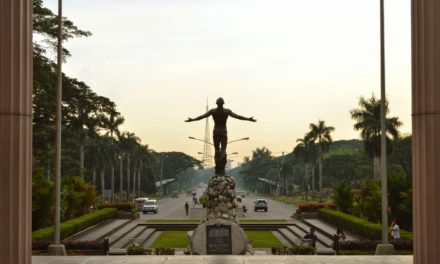Despite declarative statements about gender equality, in the modern world, women still face deterrence in their advancement in the political sphere. There are still not many state leaders and generally active women in politics, which is connected with gender stereotypes and prejudices. Journalists often reflect on whether a woman can become a good politician. In addition, many academic works have been written on this topic within the walls of the best educational institutions. If you also need to prepare the paper about female politicians, you can contact a coursework writing service and order an essay about Margaret Thatcher or any other figure. A few years ago, we were all worried by the news about the death of the first and only woman in the UK who occupied the post of Prime Minister for 11 years. It is possible to assess her activities in different ways. However, it should be emphasized that the phenomenon of Margaret Thatcher has become an important milestone in the history of women’s advancement in politics. She created a precedent that questioned the stereotype of the incompatibility of women and politics, the inability of ladies to participate in political processes on an equal footing with men. Out of play In the Western world, women achieved many political and social rights only in the early twentieth century. Prior to this period, their participation in government was possible either because of the belonging to the ruling dynasty or the royal family or because of some absolutely unique case (the example of Joan of Arc). This was due to the existing idea of the inviolability of the gender division of labor, where a woman is focused on the private sphere, and a man – on the political and public issues. In other words, while a man had an opportunity to participate in making important political and economic decisions, a woman’s role was reduced to servicing. Moreover, many people still consider this division to be a “natural” consequence of gender differences, since, “a woman cannot be a politician with her low intelligence”. In 1791, Olympe de Gouges, in response to the Declaration of the Rights of Man and the Citizen in France, wrote a kind of feminist manifesto – Declaration of the Rights of Woman and the Female Citizen, where she pointed out that a woman is born free and equal in rights to men. Her famous phrase: “A woman has the right to mount the scaffold. She must possess equally the right to mount the speaker’s platform.” The emergence of this Declaration was due to the fact that the documents underlying the concept of human rights lacked recognition of women’s civil rights and the very idea of gender equality. Women remained invisible in such a system, did not receive the same rights as men, and accordingly, their activities were limited only to the private sphere. Ladies have received important political rights thanks to the movement of suffragettes in the late XIX – early XX century. Participants in this movement were constantly arrested and imprisoned, went on hunger strikes and, as a result, were forcibly fed. Thus, ladies in Europe and the US received their political freedoms as a result of a bitter struggle. Current situation As of February 1, 2013, women make up about 20.4% of the national parliaments in the world. At the same time, for European countries, this figure is 23.2%. In the Nordic countries, it reaches 42%. In addition, it should be noted that, compared to 1945, this indicator has increased by more than 6 times worldwide. Thus, in 1945, the average rate of participation of women in national parliaments was no more than 3%. However, although the number of women in national parliaments has increased significantly, it is still small. The most important political decisions are still taken by men who affect the choice of policy priorities. The unequal share of women in power structures leads to the strengthening of stereotypes and the implementation of discriminatory policies. The UN has identified six main factors that contribute to strengthening women in politics:
- equality in access to education;
- quotas for the participation of women in government bodies;
- strengthening of the social protection of women and children;
- more sensitive and equal funding from the budget, taking into account the needs of men and women;
- inclusion of gender statistics in national studies;
- encouraging the development of the women’s movement.
Barriers to the participation of women in the political sphere and activities of governmental bodies are of institutional and discursive (stereotypes regarding the female role and purposes) nature. Institutional barriers are reflected in statistics on the representation of women in various government bodies. Thus, although ladies make up 51.1% of the economically active population, they rarely get to the leading positions. For example, in the government, women make up 68% of the total number of all employees. However, only 9% of female workers become managers of organizations. But 44% of men and 63% of women work on the positions of specialists. Indicators regarding the access to education, namely promotion in the scientific sphere, are also low. There are 5 times more men among the doctors of science. Such data confirm that although women can receive higher education, access to the following levels (postgraduate and doctoral studies) is difficult for them. In addition, since childhood, girls are guided by “traditionally female roles”. Therefore, no special deterrence is needed. Stereotypical attitudes become discursive barriers in the formation of women’s social and political activity. Despite declarations of equality, women, as agents and subjects of politics, remain rare phenomena, almost something supernatural. This situation is a consequence and a reflection of the existing inequality in society, where women are given fewer resources and opportunities to choose their own way of life. However, as Margaret Thatcher once said: “Any woman who understands the problems of running a home will be nearer to understanding the problems of running a country.”











